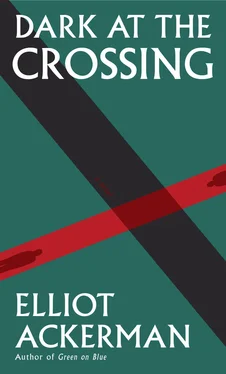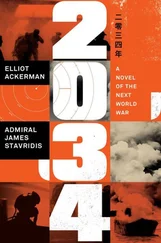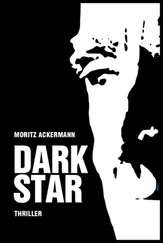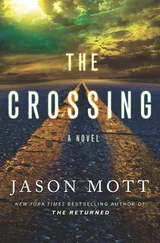Slowly, Daphne opened her eyes. Haris looked away, not wanting to hear her answer, but he could feel her gaze on them both. “A daughter,” she said.
“And what do you think of him going to fight?”
She sat up a little straighter. “It’s his decision.”
“An easy one for him to make with no children,” said the farmer. “It’s only when you have children that you understand such a decision.”
“People with children usually aren’t the ones doing the fighting,” muttered Haris, unable to keep quiet even though he didn’t want to argue with the farmer in front of his family.
“Sometimes those with a family fight.” The farmer glanced back at his daughter, who still held her hand over the pocket with the envelope of seeds. “Before I was a father, I saw angry, idealistic young men take up jihad in Chechnya, Iraq, the Balkans. I thought they were driven by a cause. But the fighting doesn’t go on because of ideas. It goes on because of loss. If I was robbed of my daughter, I would be lost from this world. I’d take up arms and fight like a dead man alive, killing until I was killed.”
Dead man alive, thought Haris. He noticed Daphne had again closed her eyes.
Approaching Aleppo, Route 214 became a series of raised roads, which fanned out across parched fields, their furrows hardened and untended. Submerged beneath the horizon, a low, throbbing sun slit a seam of red light across the eastern countryside. Layers of cirrus clouds glowed pink in the altitudes, and the outskirts of Aleppo sprawled to the south, coming into view. White minarets dotted the skyline, some snapped in half, some surviving the years-long battle. As the first morning light fell across them, they became a milky red phalanx, against which countless fighters had thrown themselves.
“There, do you see?” The farmer grabbed Daphne’s arm, pointing up ahead. A hollow cinder-block house stood where several dirt roads intersected. A large pad of poured concrete spread in front of the house, and its doorway and windows were empty and black like the sockets of a skull. “That’s a school.”
“Looks like a gas station,” said Daphne.
The man shrugged. “Maybe once, but now it’s a school. I thought you’d like to know, having been a teacher.”
“What grades do they offer?”
“None.”
“Then how is it a school?” asked Daphne.
Haris gazed out the side of the tarpaulin to the city’s outskirts. More squat cinder-block homes peppered the distance. Cooking fires burned beneath their chimneys, the smoke and early light blending into tangerine clouds. Here and there, Haris caught a darkened silhouette peeking from a door or from behind a crooked window, only to immediately tuck away. Then Haris noticed two beams cast against the road.
Headlights.
He couldn’t make out what type of vehicle it was, but it seemed determined to intercept them. He felt their truck lurch into a higher gear. Up ahead, Haris saw the school’s faint, grubby outline. If they could get past it, the car, which now kicked up a wide tail of dust, would pull behind them and then, maybe, they’d be able to outrun it.
No one in the back of the truck spoke. Each set of eyes calculated time and distance, figuring if and when they’d be stopped. At a few bends in the dirt road the chasing car fishtailed in the loose earth, kicking up more massive dust clouds. The school was close now. The car was close, too. Haris could make out the brand — some type of Toyota sedan. Then, just as Haris thought that with a little more speed they might outrun their pursuers, the truck loosed a salvo of backfires while its engine groaned, reaching its highest gear. To Haris, it seemed that groan came from the back of the bed, where he and all the others felt helpless as cargo. The little girl climbed from her father’s knee into her mother’s lap.
The Toyota pulled in front of them, coming to a halt near the intersection of the dirt road and the school. The truck’s brakes whined as it pulled onto the shoulder. Haris and the others froze where they sat. The Toyota’s doors swung open and then slammed shut. The sound of boots crunched down the asphalt, drawing closer, then stopped. A voice called up to the cab, demanding that Jamil and the driver step onto the road. Haris heard the truck’s heavy doors open and close. He strained to hear Jamil or even the driver speak. There was only silence. Just as Haris felt tempted to press his face to the tarpaulin’s seam, chancing a look, he heard a set of steps approach the tailgate. He leaned against his seat, trying to become small in it. He glanced next to him, at the farmer, whose attention was fixed on his family. Then he glanced at Daphne, whose attention was fixed on him. They held each other with their stares.
The back of the tarpaulin flung open. A blue half-light rushed into the bed. A soldier stood at the tailgate, the barrel of his rifle leveled on them. He wore a floppy red beret and freshly pressed camouflage utilities. He was clean-shaven, his cheeks paler than the rest of his face, as if only the night before he’d removed a thicker beard.
Haris sucked in a quick breath.
The soldier noticed, looking in his direction. Haris turned away, but not before he spotted the patch on the soldier’s uniform, crossed sabers within a laurel — Assad’s Third Corps.
“There’s more back here,” the soldier shouted toward the cab, where the other one stood. In the instant he looked away, Daphne removed her head scarf. Something about this upset Haris. At this moment of peril, she’d decided to fly a false flag, appearing secular to save herself. Then again, the head scarf had been a false flag in the first place. Even if Daphne was Muslim, she was half-Christian also, and no part of her was religious.
As Daphne spread her hair flat, the other soldier came around to the back of the truck. He had the same fresh-shaven appearance as the first, but he wore a black beret, its felt creased with deep wrinkles. Haris also noticed his shoulder patch, one from an unrelated unit — Assad’s First Corps in Damascus.
“Everybody out,” ordered the soldier with the black beret.
Haris sat unmoving on the end of the bench, blocking the exit. Daphne tugged his arm. They stepped down from the truck, Haris helping Daphne with her heavy suitcase filled with journals. The sun had yet to break the horizon but it soon would, and Haris felt physical relief as he left the tarpaulin’s dank confines. On the road, the air was cool in the morning.
With rifles leveled, the two soldiers herded everyone into the fields. Jamil walked just ahead of Haris with his head down, continuing to peek toward Aleppo. His face was filled with a raw fear, eyes spread wide as if taking in the last of the world. To escape his captors, Haris thought Jamil might sprint down the road at any moment. If he did, Haris promised himself he would do what he could to save the boy, even though he didn’t know quite what that would be.
The farther from the road they traveled, the more certain Haris felt they’d never return to it. Glancing behind him, he saw the farmer, who followed with his family, his daughter scooped up in his arms as she still cradled Bashar, his wife holding his free hand. When an old, infirm couple from their group stumbled among the dry, brittle furrows, the two soldiers offered some help, making sure everyone kept together.
They didn’t march far, maybe a hundred meters or so. Just outside the school was an elm. Its wide, leafy branches caught the first of the breaking day, shimmering in the wind and clean early light. The two soldiers stopped them beneath the tree, forming everyone into a row and asking to see their papers. Only a few in the group had papers, and the soldiers seemed unconcerned by this. Then they asked everyone to remove their valuables, the explanation being some type of customs declaration. Haris and Daphne opened their bags, and Daphne tossed the second half of their payment, the twenty-five hundred, into the dirt. Her thousands were added to the thousands of everyone else, their many months of wages and toil strewn across the earth. Then Haris noticed the little girl, standing next to her father, the farmer. Bashar lay at her feet, and she held her hand against the pocket on her dress, hiding the envelope of seeds.
Читать дальше












